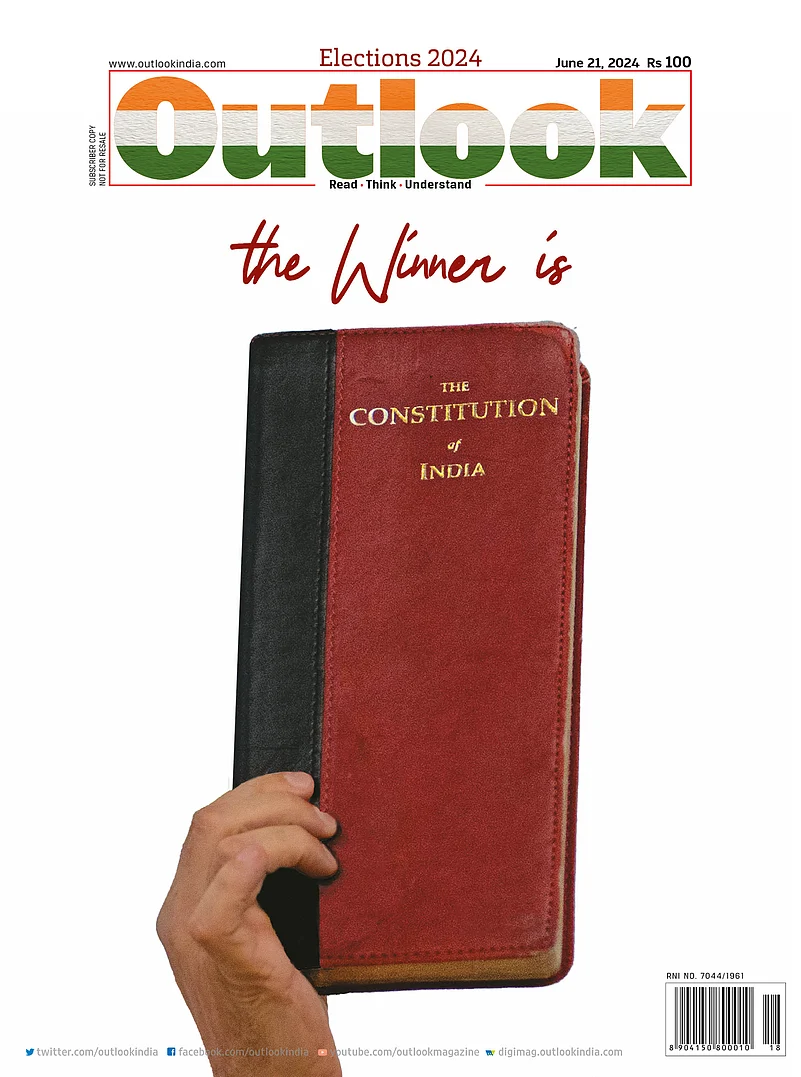On November 26, 1949, the Constituent Assembly of India adopted the Indian Constitution, paving the way for it to come into effect on January 26, 1950. Since then, the guiding light for the polity has withstood multiple challenges to its basic tenets.
Constitution Day: A Decade In The Battlefield Of Ideas
As we commemorate India’s adoption of the Constitution, Outlook looks back on a decade during which the Constitution of India has been a battlefield of ideologies

In 2015, Prime Minister Narendra Modi declared the day as Constitution Day or Samvidhan Divas. “Our Constitution is more than a legal document. It’s an instrument of society,” he said, addressing Parliament on the occasion. BJP members sitting behind him broke into applause.

Ironically, the period during which the Modi government has been in power has seen more cases before Constitution Benches of the Indian Supreme Court than any other before it. One of the first challenges from the government was introducing the NJAC and pushing for the removal of the Supreme Court collegium, which the apex court bench struck down as unconstitutional. The government has also won many of the cases; legal experts often cite the Supreme Court’s silence on the legality of the 2019 abrogation of Article 370 in Kashmir as an example. Outlook had examined in detail what a Kashmir Without 370 would look like in its August 19, 2019 issue. Prem Shankar Jha had written about the Hindutva-RSS agenda behind the abrogation and Yashwant Sinha had called out the move as further widening the divide in India.

This decade under the Modi government has been marked by challenges to writ of the Indian Constitution. Starting with his 2014 promise of the Uniform Civil Code (UCC) to the government’s bid to remove the Supreme Court collegium, to the most recent General Election slogan of “Ab Ki Baar 400 Par”, the number of Lok Sabha seats the ruling party would need to amend the Constitution.
The BJP’s promise to amend the Constitution if elected with a two-third majority ended up galvanising the Opposition parties who formed the INDIA bloc coalition with the sole aim of preventing a saffron sweep in the 2024 General Elections. As Outlook’s Editor Chinki Sinha said in the June 21, 2024 issue, the little red book won in the end. The INDIA bloc did not get the majority, but their ‘win’ was in protecting the Constitutional document from any potential change as Mukul Kesavan wrote for Outlook. The BJP’s loss in States like Ayodhya where it had delivered its Ram Janbhoomi promise also showed how the nation had become seemingly tired of communal politics, wrote Tanul Thakur.

The UCC, conceptualised by Ambedkar, has found an odd proponent in the BJP. But, more often than not UCC is brandished by BJP supporters as a way to check “privileged minorities.” In Outlook’s June 11, 2023 issue Uniform Civil Code, Omar Rashid questioned whether a country as diverse as India could ever be a progressive model of governance. Abhik Bhatacharya underscored Rashid’s asks by explaining how Adivasi culture had been ignored while drafting the UCC. The Code has also been questioned by women for its patriarchal roots, Nivedita Menon wrote for Outlook.
Even today, as India walks into the 75th year of the Constitution and takes it further, as Law Minister Kiren Rijju said this morning, the SC has had to strike down a challenge to the Constitution which has asked it to remove the words secular from the Preamble.
-
Previous Story
 Places Of Worship Act: Supreme Court Hearing, The Controversy And More | Explained
Places Of Worship Act: Supreme Court Hearing, The Controversy And More | Explained - Next Story














